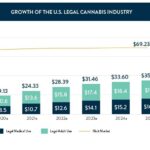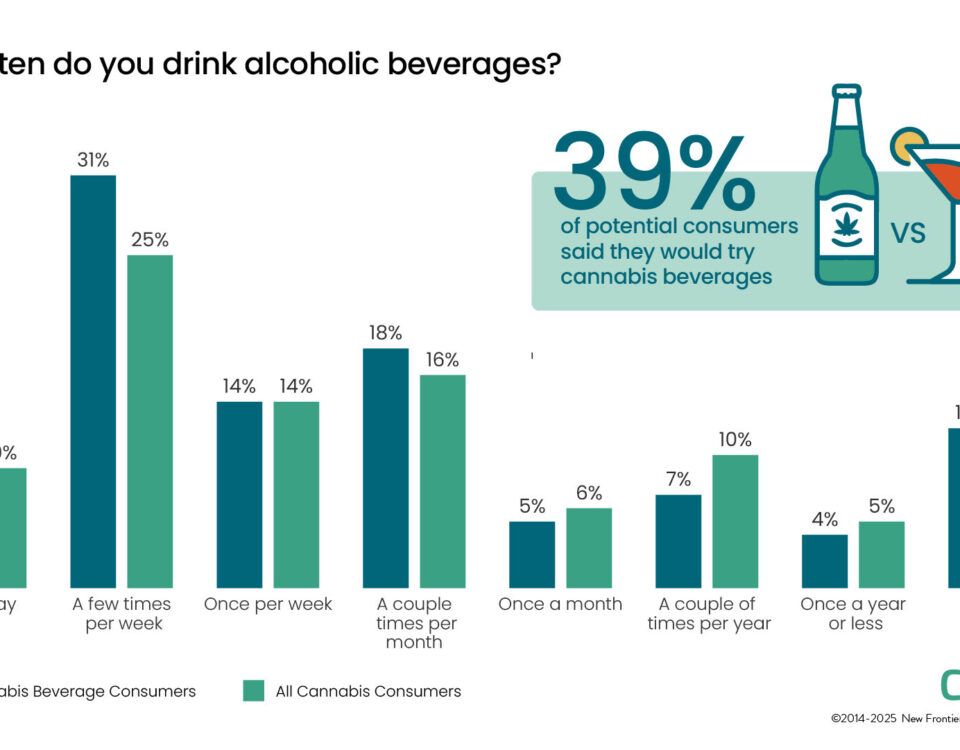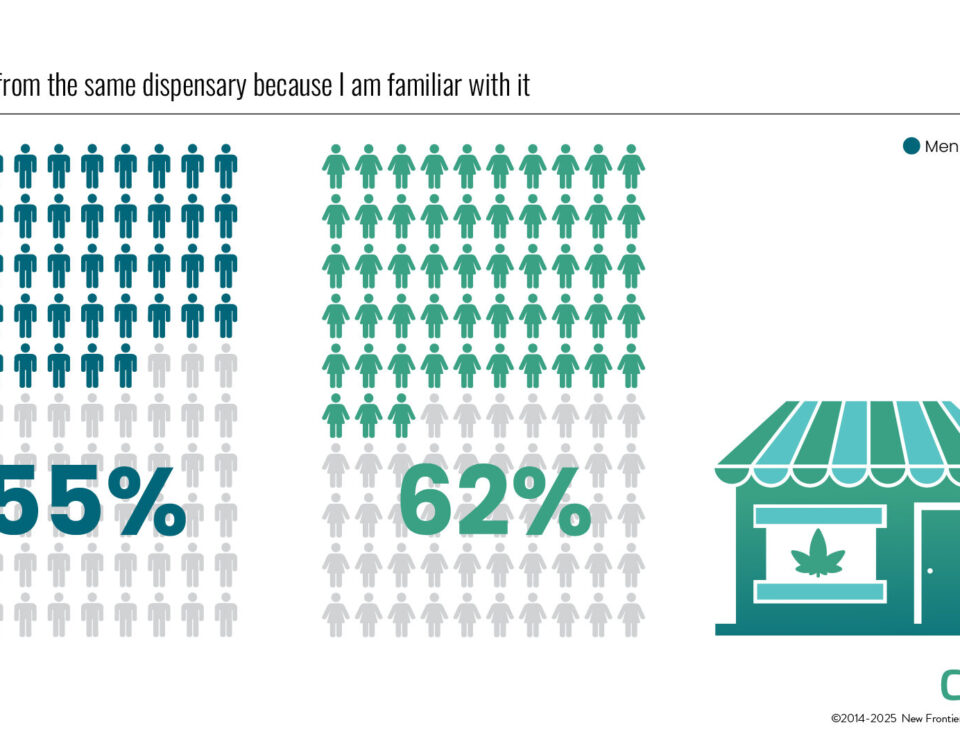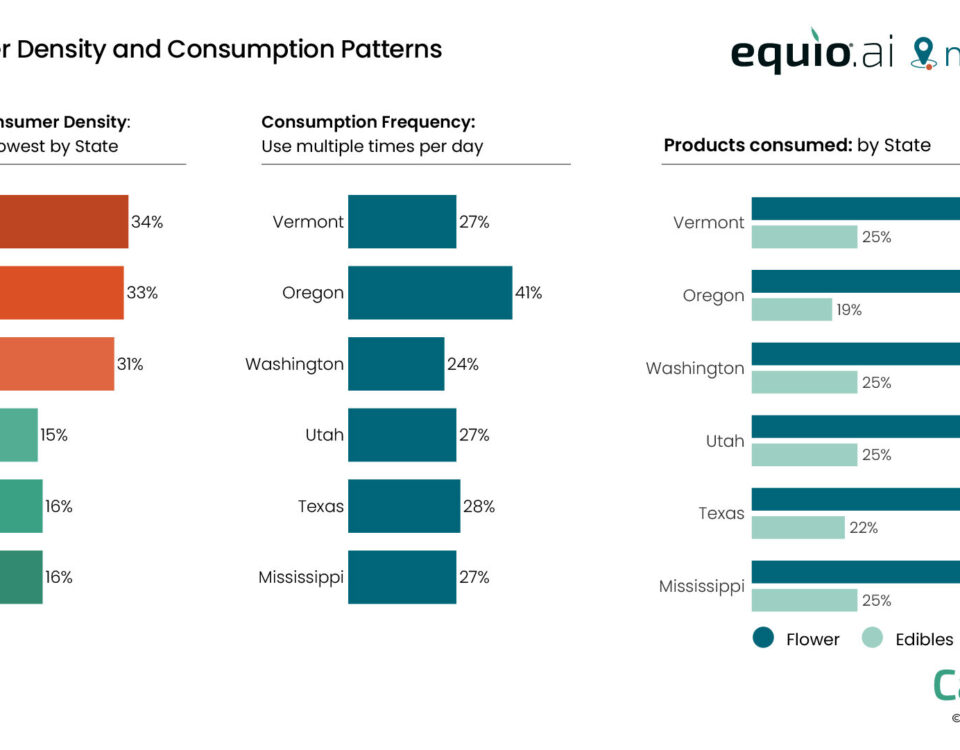Early Ballots Indicate Support for Legal Cannabis

Growth Of The U.S. Legal Cannabis Industry
September 27, 2020
$26.4 Billion U.S. CBD Consumer Market Boom by 2025
September 30, 2020By New Frontier Data
Five weeks before Election Day 2020, 34 states plus the District of Columbia (D.C.) have legalized cannabis for medical use, and 11 states plus D.C. have legalized cannabis for personal or adult use. Combined, the total number of people living in a U.S. state that has legalized either medical or adult-use cannabis is 230 million, or 70% of the American population. Come November, five more states will be voting about legalization.
Support for cannabis legalization is one of the fastest-evolving social issues in the U.S. According to the Pew Research Center, more than two-thirds (67%) of Americans support full legalization: up from 41% in 2010, and more than double what it was in 2000 (31%). The General Social Survey and The Gallup Poll, two other leading institutions reporting on long-term trends in public opinion on cannabis, both corroborate Pew’s results. The GSS pegs support for cannabis legalization at 62% while the Gallup Poll shows support at 66%.
In 2019, the U.S. legal cannabis industry generated an estimated $13.2 billion in consumer sales across all legal medical and adult-use state markets combined, and amidst the seismic economic disruptions caused by the COVID19 pandemic, cannabis sales have surged, projected to surpass $19 billion in 2020. Total legal sales (both medical and adult-use) of cannabis in current legal states are projected to grow at a compound annual growth rate (CAGR) of 18% over the next five years, to reach $35 billion by 2025.
Industry expansion is fueled by two convergent forces – from the addition of new markets as more states continue to legalize cannabis use and activate sales, and from sustained growth in demand in legal states as consumers make the transition from the illicit market to the legal market. While competitive forces and economies of scale will eventually drive down both wholesale and retail prices, increasing consumer demand will propel sustained growth in total legal revenues through 2025.
The convergence of both public acceptance and cannabis’ increasing prevalence of use portend the continued and deepening entrenchment of cannabis in American society. Those trends are not limited to the 34 states already allowing cannabis for medical use and the 11 having legalized its full adult use, but rather they extend nationally, if imperfectly, through a patchwork of laws regulating cannabis in locales throughout the country.
While cannabis use (and the war against drugs writ large) has been a wedge issue in politics for decades, politicians in even the most conservatives regions would seem well advised to heed the rapidly shifting tide of public support, especially as science increasingly affirms the therapeutic value of medical cannabis, and the legal industry proves to be a positive economic engine for legal states. With attitudes toward cannabis shifting quickly, both the 2020 presidential election cycle and 2022 legislative election cycle may yield the most pro-cannabis legislators elected to national office in U.S. history. With them, advocates hope, will follow the strongest likelihood of national cannabis reform since federal prohibition was established in 1937.




